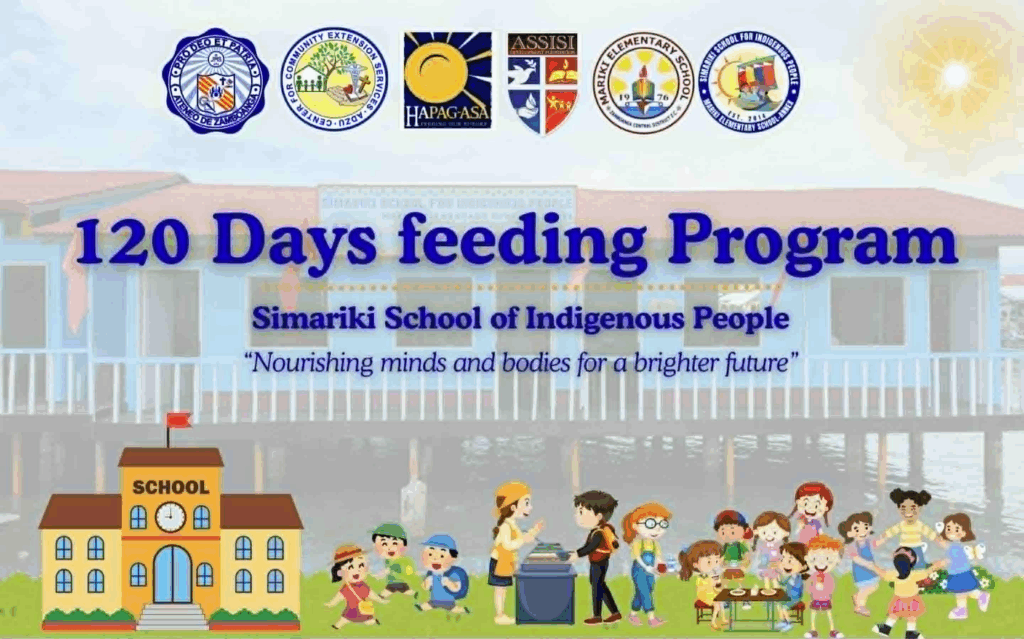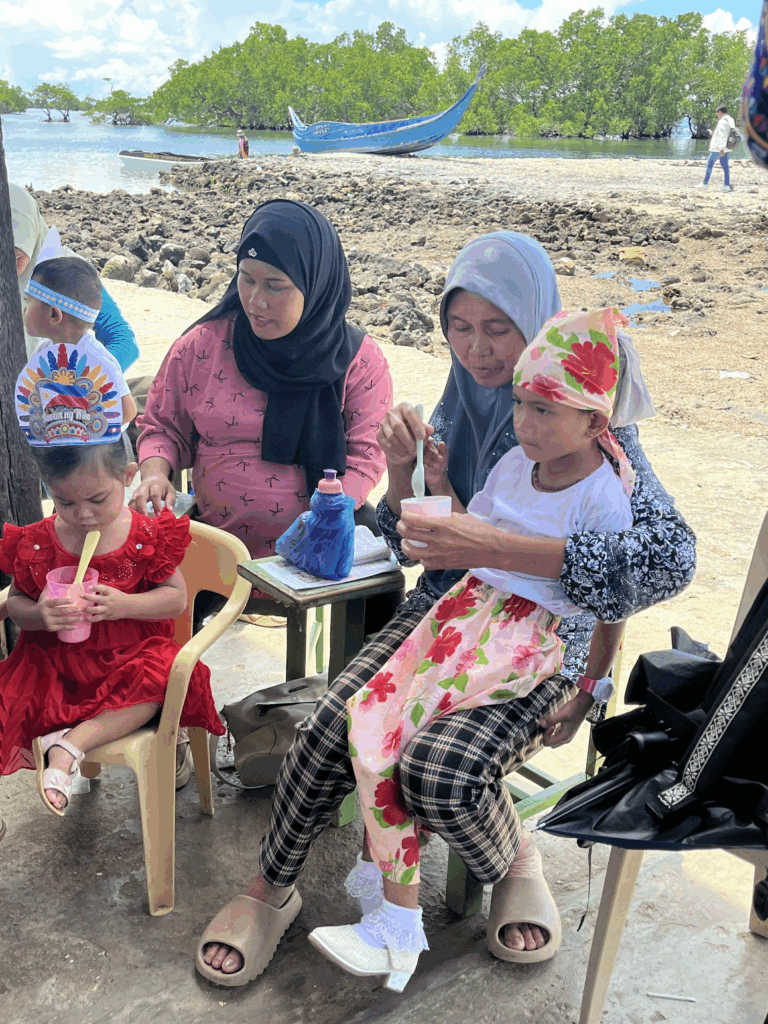
On September 10, 2025, the island community of Simariki witnessed the joyful launch of a transformative initiative aimed at combating child malnutrition and strengthening family well-being. The 120-Day Hapag-Asa Feeding Program was officially introduced at Simariki School for Indigenous People, through the collaborative efforts of the Ateneo de Zamboanga University – Center for Community Extension Services (ADZU-CCES), the Assisi Development Foundation, Inc., and the Hapag-Asa Integrated Feeding Program. The project was made even more meaningful through the active support of local teachers, parents, and community members.

The program is designed to provide daily nutritious meals for 120 days to undernourished children, addressing not just hunger, but the long-term physical and mental development of young learners. But beyond just feeding, the initiative also aims to educate and empower families with health knowledge, sustainable practices, and a renewed sense of shared responsibility.
A community orientation session was conducted alongside the launch, helping parents and caregivers better understand the program’s goals and its potential impact on their children’s growth and learning. These sessions emphasized the importance of balanced nutrition, hygiene practices, and active parental involvement in early childhood development.
The program’s health component goes even further integrating hygiene education, parent formation sessions, and early childhood learning activities to promote sustainable well-being beyond the feeding period. These sessions not only educate, but also build relationships and shared goals among families.

In support of long-term sustainability, Mr. Arjun Pagayon Carolasdolasan, Livelihood Program Officer of CCES, introduced the concept of FAITH Gardening (Food Always in the Home). Through this, families are encouraged to grow their own vegetables and herbs, empowering them to become self-reliant and to secure a consistent food source for their children. The gardening initiative complements the feeding program by reinforcing food security and community resilience.
This holistic approach to child nourishment combining food, education, livelihood, and parental involvement reflect the spirit of bayanihan, where everyone contributes to uplift the most vulnerable members of the community. It is a shared vision that the children of Simariki not only eat well today, but also grow up healthier, stronger, and better prepared for a brighter tomorrow.

-Ma. Isabel D. Pantaleon


